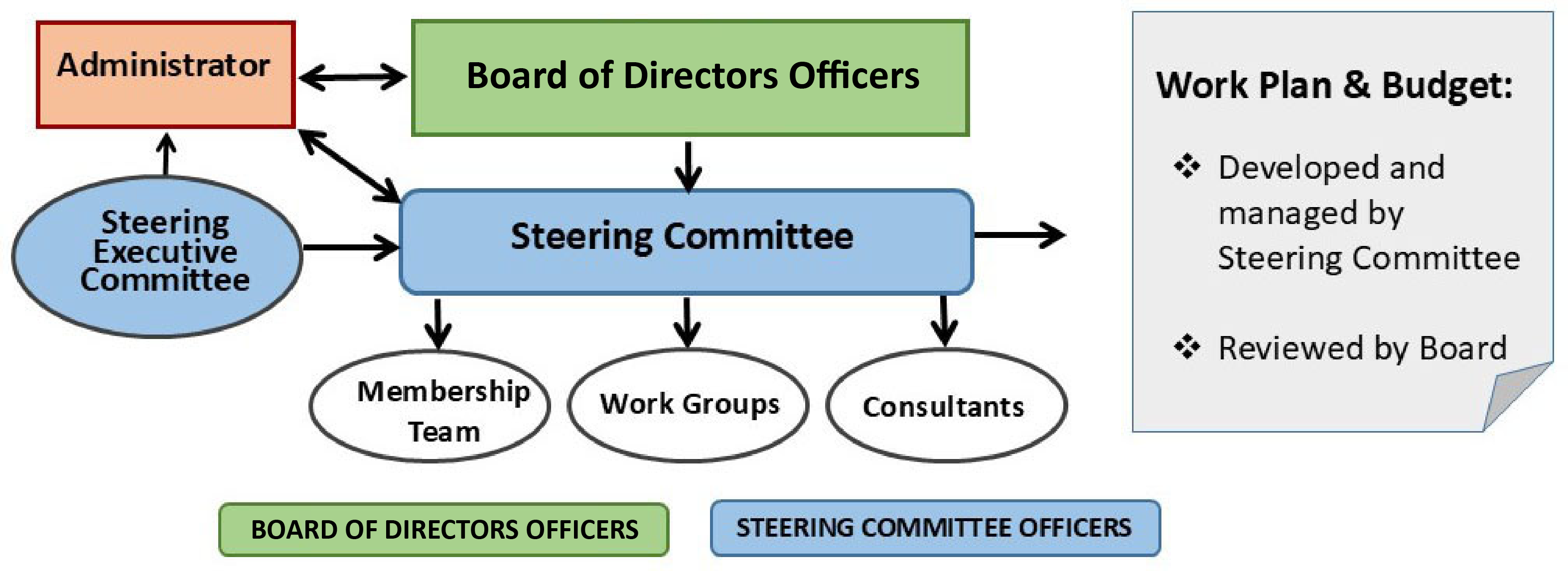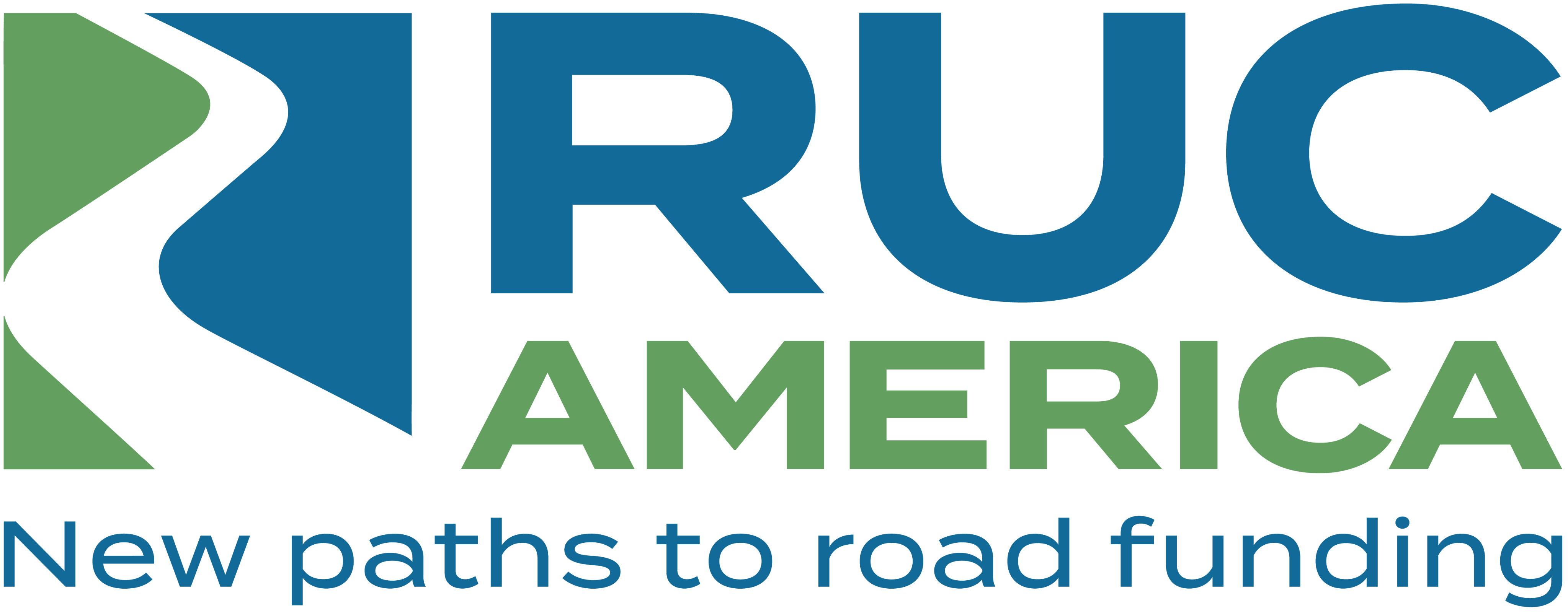RUC America brings together leaders from state transportation agencies to share the industry's best practices, ideas, and information on Road Usage Charge (RUC).
Whether you are just beginning to follow the ongoing conversation or actively considering RUC implementation in your state, RUC America is a one-stop resource that offers a clear, factual, and unbiased view of how RUC is being explored and implemented across the United States. The information provided includes real-world case studies, best practices from across the country, and the most up-to-date RUC research and developments.
RUC America Organization Structure

RUC America Priorities (Mission and Vision)
States nationwide are exploring the feasibility of RUC within their unique local contexts. RUC America enables state departments of transportation to pool their resources to share research and findings and to collaborate on pilot programs and policy development. RUC America has already funded numerous studies and pilot initiatives and continues to lead national efforts to explore and expand RUC viability.
Organizational CharterMember States
RUC America member states are organized into three tiers based on their current level of involvement in advancing RUC in their jurisdiction.
Select a highlighted state on the map to view member profile.
Legend
Tier 1: Actively promoting road usage charging as an equitable road-funding solution (implementing a program).
Tier 2: Conducting research pilot programs for road usage charging.
Tier 3: Monitoring transportation trends (evaluating the road usage charge environment).
Become a RUC America Member State
RUC America is a cooperative effort where each participating state or province commits time, talent, and funding to the good of the whole.
The Consortium was created by its founding members through the adoption of an Organizational Charter that outlines the shared vision, purpose, goals, guiding principles, organizational structure, governance and administrative duties.
Membership in RUC America connects your organization with the most current tools, resources and information on road usage charging.
Membership Criteria and Requirements
Consortium Members are expected to:
- Be members of the American Association of State Highway and Transportation Organizations (AASHTO).
- Adopt the Organizational Charter, which is evidenced by participation as a member of the Board of Directors; or by signature of the Charter, or other written intent to join the Consortium signed by the jurisdiction's transportation agency at the highest level of executive authority. Additional members may be added, subject to Board approval.
-
Participate in:
- The RUC America Board of Directors, composed of each member state's transportation head or designee, meets at least once annually to oversee activities and approve administrative costs.
- The RUC America Steering Committee, composed of a designee from each member state, meets quarterly.
- Commit to a minimum annual funding contribution (outlined in Section 6.3 of the Organizational Charter) which helps fund administrative and operational costs, meeting expenses and joint projects. The joint funding is obtained through interagency agreements or through financial participation in a Transportation Pooled Fund Program created to facilitate the Consortium.
- Contribute to the costs of the identified Work Plan, Tasks, Orders and Deliverables to the greatest extent possible. The Consortium strives to keep such costs as reasonable as possible, relying on in-kind contributions of members to the greatest extent practicable. Some jurisdictions may be asked to provide staff and administrative support, as well as contractors, to help sustain the Consortium and its work.
